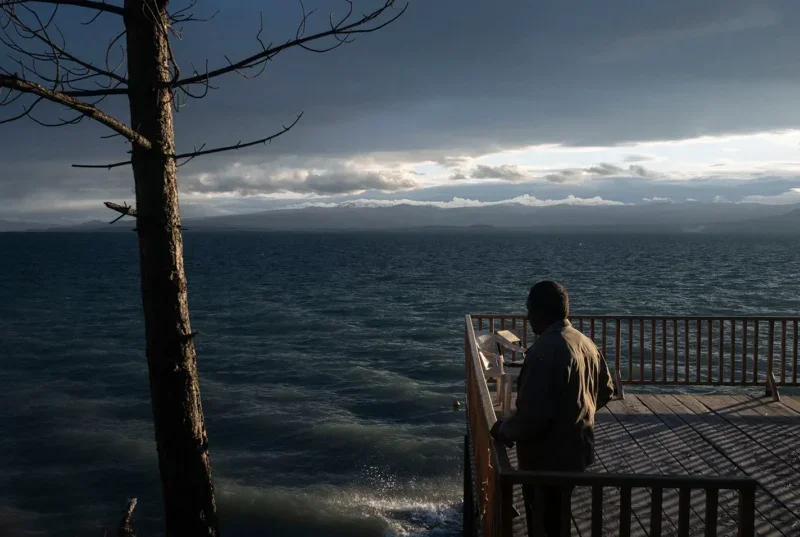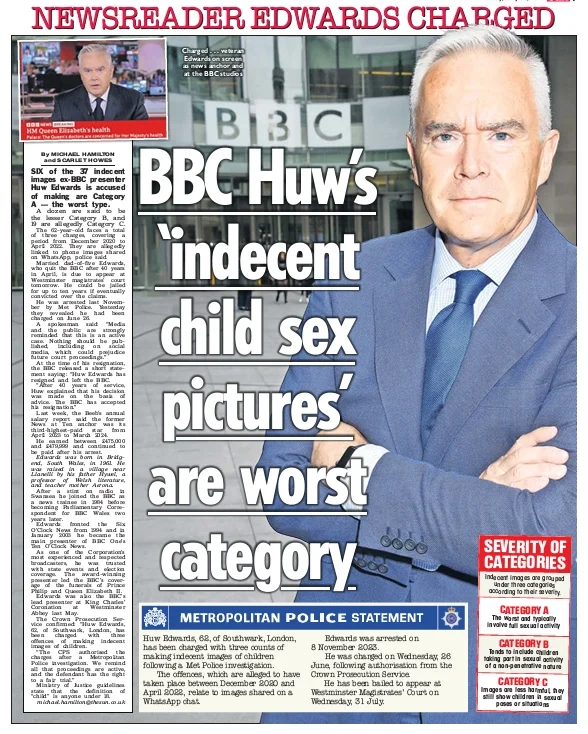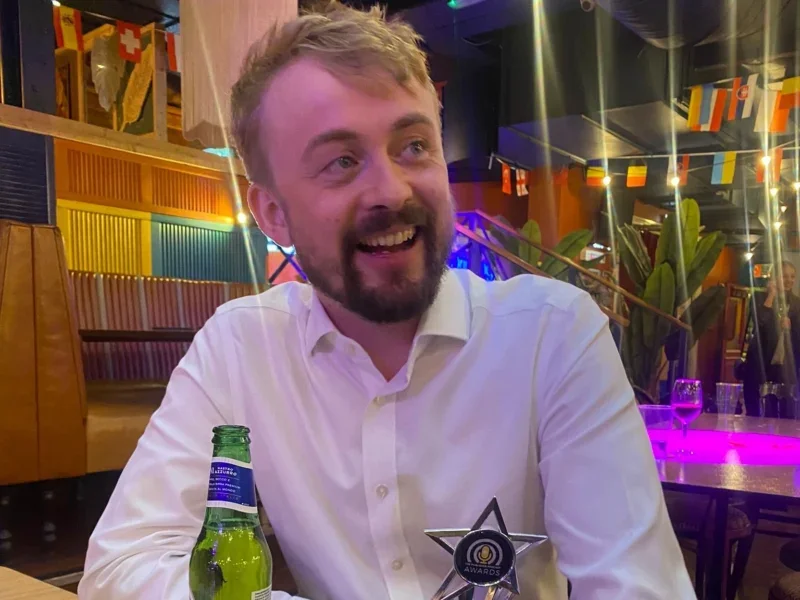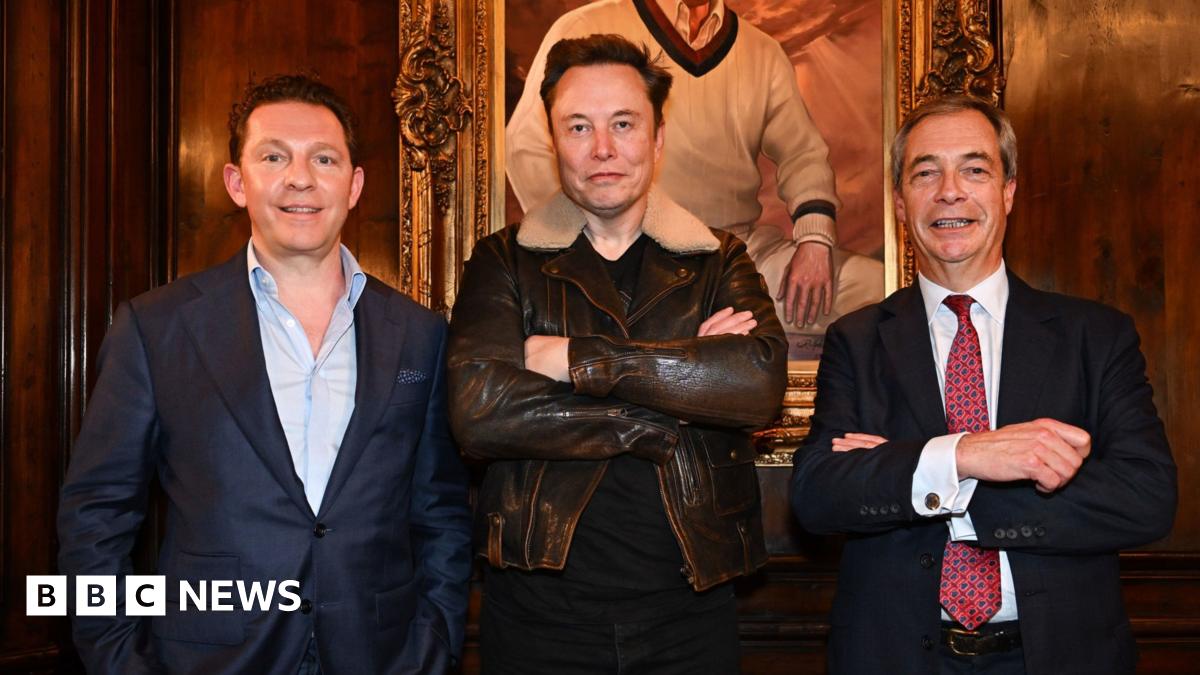World
British Journalism Awards winners 2024: Channel 4 News named best news provider, Caroline Wheeler is journalist of the year

Channel 4 News was named News Provider of the Year at the British Journalism Awards 2024 for its eyewitness journalism from Gaza, coverage of the Post Office scandal and undercover reporting during the UK general election
The British Journalism Awards judges said Channel 4 News had “led the way providing public interest journalism which raises the reputation of our whole industry”.
Meanwhile, a Sunday Times staffer was Journalist of the Year winner for the second year in a row: Caroline Wheeler received the title for her work on the infected blood scandal, following in the footsteps of colleague Gabriel Pogrund in 2023.
Judges said Wheeler was recognised for her work both over the previous year and over the course of a 23-year crusade in which she was instrumental in bringing about the public inquiry that began in 2017.
Wheeler also won the Politics Journalism category for, the judges said, being “outstanding work which is the definition of public interest journalism”.
The Sun won two of the most prestigious categories – Investigation of the Year and Scoop of the Year – for its work investigating the BBC and its most high-profile newsreader Huw Edwards.
The awards were presented at a gala dinner hosted by BBC and Channel 5 presenter Jeremy Vine at the London Hilton Bankside on Thursday night.
Other highlights included the posthumous recognition in the Public Service category for David Knowles, who spearheaded The Telegraph’s flagship Ukraine: The Latest podcast before his sudden death aged 32 in September.
And two journalists reporting from inside Gaza for Channel 4 News and BBC Eye Investigations – Yousef Hammash and Feras Al Ajrami – jointly received the Marie Colvin Award given to outstanding up-and-coming journalists of the calibre of the Sunday Times correspondent who was killed in Syria in 2012.
The 13th annual British Journalism Awards continued to celebrate journalism that showed skill and rigour, was revelatory and served the public interest.
The 26 winners were whittled down from more than 750 entries and 170 finalists by an independent panel of 80 judges.
The BBC was a big winner of the night across four categories through its different strands.
Laura Kuenssberg was named Interviewer of the Year for interviews with Baroness Mone and Chancellor Rachel Reeves on her Sunday morning programme, a team from Radio 4 won the Crime & Legal Affairs Journalism category for their work tracking down a wanted people smuggler, and a Panorama team won Social Affairs, Diversity & Inclusion Journalism for revealing allegations of exploitation and abuse at fashion brand Abercrombie and Fitch. The BBC was also highly commended in four categories.
Also recognised in four categories were The Times and Sunday Times: as well as Wheeler’s two prizes, Rosamund Urwin and Charlotte Wace won in Arts & Entertainment Journalism for their investigation into allegations against Russell Brand and Oliver Marsden won New Journalist of the Year for work from Israel and Lebanon for The Sunday Times and Al Jazeera. The publisher was further highly commended in three categories.
The Economist was close behind with three wins: Duncan Robinson won the Comment Journalism category, while from its 1843 magazine Thomas Dworzak won Photojournalism and Amanda Chicago Lewis won Technology Journalism.
The Sun was rewarded in two categories (Scoop and Investigation of the Year) for its work revealing allegations and then charges against Huw Edwards.
The judges said: “Unmasking such a powerful figure and exposing not only how they abused their position but but how the BBC had failed to act was a huge act of public interest. This story required not just old-fashioned investigative techniques but sensitivity and judgement in how to handle and present the investigation.”
Also winning two categories each were The Bureau of Investigative Journalism and The Guardian (which did not have any representation on the awards night due to the ongoing strike against the sale of The Observer to Tortoise).
Nominated Guardian journalists shared a statement read out on the night which said: “We are so disappointed that we can’t be here with you tonight, but want to thank Press Gazette and the judges for shortlisting us and also pay tribute to our fellow nominees for their impressive work. From the picket lines, have a great night.”
In his opening comments, Press Gazette editor-in-chief and chairman of the judges Dominic Ponsford said: “Artificial intelligence can do a lot, but it can’t go undercover in a prison, care home or school. It can’t be the eyes of the world, risking everything to report from war zones. And it can’t make the call to face down legal threats, despite the high costs, and decide to publish and be damned as so many of you have done over the last year.
“Amid a sea of online content which can be filled with ‘made for advertising’ sewage, the work on display tonight reminds us all that real journalism is special, it does matter and it can make a difference. It is worth fighting for and protecting from the parasitical US tech giants who have been allowed to dominate and monopolise so much of our media and culture.”
The awards were supported by headline sponsor Starling Bank along with Amazon and RenewableUK. The event supported charity partner the Journalists’ Charity, which is devoted to assisting members of the profession who fall on hard times. If you can, please help a colleague by making a donation via this link.
WINNER: Josephine Moulds — The Bureau of Investigative Journalism
The judges said: “Well written, detailed and revelatory. Three massive stories which had an impact and got results.”
Highly commended: Guy Grandjean, Patrick Fee, Gwyneth Jones and Chris Thornton — BBC Spotlight Northern Ireland
Highly commended: Sam McBride — Belfast Telegraph
The judges said the highly commended finalists “both exposed really shocking levels of pollution in Britain’s largest freshwater lake and got results”.
Health & Life Sciences Journalism
WINNER: Rebecca Thomas — The Independent
The judges said the winner’s work provided “three significant examples of dogged journalism which had a huge impact”.
WINNER: Gill Plimmer and Robert Smith — Financial Times
The judges said the FT “played to two of its journalists’ strengths here – notably its coverage of infrastructure and the debt markets – to bring the crisis at Thames Water to front pages across the country”.
Highly commended: Anna Isaac and Alex Lawson — The Guardian
The judges said: “This was an impressive, good old-fashioned off-diary scoop of the best variety, clearly written against a wall of intransigence.”
Crime & Legal Journalism
WINNER: Sue Mitchell, Rob Lawrie, Joel Moors, Winifred Robinson, Dan Clarke, Philip Sellars, Tom Brignell and Mom Tudie — BBC Radio 4
The judges said: “Gripping, brave, brilliant tradecraft and a huge public interest operation achieving what the police couldn’t.”
WINNER: Duncan Robinson — The Economist
The judges said Robinson was “absolutely on the money on freebies long before the rest of the media, particularly Keir Starmer’s declarations. He exemplifies the fine art of balanced commentary.”
Sports Journalism
WINNER: Simon Lock, Rob Davies and Jacob Steinberg — The Bureau of Investigative Journalism / The Guardian
The judges said: “This was superb work which tenaciously pursued a story others seemed happy to forget, exposing the less salubrious machinations behind the lucrative world of football.”
Online Video Journalism
WINNER: Tom Pettifor, Matthew Young and Daniel Dove — Daily Mirror
The judges said: “This was a compelling video report which revealed persuasive new evidence on one of the UK’s most high-profile unsolved murders, 25 years on.”
Highly commended: Mohamed Ibrahim, Owen Pinnell, Mouna Ba, Wael El-Saadi and Feras Al Ajrami — BBC Eye Investigations
The judges said: “A deeply compelling watch that captured brilliantly the plight of people in Gaza.”
Highly commended: Reem Makhoul, Robert Leslie, Clancy Morgan, Amelia Kosciulek, Matilda Hay, Liz Kraker, Dorian Barranco, Barbara Corbellini Duarte, Erica Berenstein and Yasser Abu Wazna — Business Insider
The judges said: “A highly polished and beautifully visualised piece of research about the effects of the war in Gaza.”
Specialist Journalism
WINNER: Emily Townsend — Health Service Journal
The judges said: “A great range of stories tackling tough subjects, all well researched and genuinely impactful.”
Photojournalism
WINNER: Thomas Dworzak — 1843 magazine, The Economist

The judges said: “A sensitive and deeply moving set of photos which reveal an untold story and provide a visual record of the human toll of geopolitical conflict.”
Innovation of the Year
WINNER: Harry Lewis-Irlam, Stephen Matthews, Darren Boyle and Rhodri Morgan — Mail Online: Deep Dive
The judges said: “A clever way of conveying complex information without overwhelming the audience. A genuinely innovative new story format.”
Highly commended: Alison Killing, Chris Miller, Peter Andringa, Chris Campbell, Sam Learner and Sam Joiner — Financial Times
The judges said this entry displayed an “innovative use of AI on an extremely important public interest story”.
Highly commended: David Dubas-Fisher, Cullen Willis, Paul Gallagher and Richard Ault — Reach Data Unit
The judges said this was “data journalism that makes excellent use of public data to provide useful information in an accessible format”.
WINNER: Amanda Chicago Lewis — 1843 magazine, The Economist
The judges said: “This was a gripping story which shed new light on one of the biggest problems in the world of technology and how companies respond when they are under ransomware attack.”
Features Journalism
WINNER: Sirin Kale — The Guardian
The judges said: “Sirin’s work is a masterclass in how to blend beautiful writing with meticulous research to ensure she delivers an absolute must-read piece of journalism.”
Highly commended: Fiona Hamilton — The Times
The judges said: “A journalistic class act who showcases how to bring unique angles to tragedies which had received global scrutiny.”
Highly commended: Inderdeep Bains — Daily Mail
The judges said: “Inderdeep’s determination to give a voice to a vulnerable young person who literally could not speak for herself resulted in real-world discussion around policy change. A heartbreaking story told with compassion and vigour.”
Marie Colvin Award
WINNER: Feras Al Ajrami — BBC Eye Investigations
WINNER: Yousef Hammash — Channel 4 News
The judges said: “Whilst the world’s media has been banned from entering Gaza, these reporters were among those who have ensured that victims of the conflict still have a voice. It is a conflict zone which has become the most deadly in history for the media, with 137 journalists and media workers killed in just over a year.
“They’ve both captured the voice from the ground, shown tremendous courage in appalling circumstances and produced vivid, memorable stories. Whilst one chronicled the work of emergency crews working in Gaza during the first weeks of the conflict, the other winner covered the bombardment of Gaza even as his home was destroyed and he had to flee south with his family.”
New Journalist of the Year
WINNER: Oliver Marsden — The Sunday Times/Al Jazeera
The judges said: “This journalist has demonstrated huge courage reporting from dangerous areas. Vivid and compelling reporting.”
Local Journalism
WINNER: Sam McBride — Belfast Telegraph
The judges said: “Sam is a proper journalistic pain in the arse for those in power. Strong, compelling stories, meticulously researched and told with flair and authority.”
Highly commended: Abi Whistance, Joshi Herrmann, Kate Knowles, Mollie Simpson and Jothi Gupta — Mill Media
The judges said this was “brilliant forensic reporting drawing threads together from three cities to create a powerful expose of exploitation and corruption”.
Highly commended: Richard Newman, Jennifer O’Leary, Gwyneth Jones and Chris Thornton — BBC Spotlight
The judges said: “Absolutely compelling documentary making which exposed the police incompetence that allowed a killer to be at his dying victim’s bedside.”
Social Affairs, Diversity & Inclusion Journalism
WINNER: Rianna Croxford, Ruth Evans, Cate Brown, Ed McGown, Tom Stone, Ed Campbell and Karen Wightman — BBC Panorama
The judges said: “This three-year investigation made global headlines after it revealed sexual abuse and exploitation at the top of a major fashion brand. Brave journalism which gave male victims a voice in the #metoo movement and has had a huge impact.”
Highly commended: Abi Kay — Farmers Weekly
The judges said this was “journalism which exposed uncomfortable truths at the heart of the community this publication serves”.
Highly commended: Joshua Nelken-Zitser, Ida Reihani and Kit Gillet — Business Insider
The judges said this was a “wide-ranging investigation into a largely untold story in one of the most secretive parts of the world”.
Interviewer of the Year
WINNER: Laura Kuenssberg — Sunday with Laura Kuenssberg, BBC News
The judges said: “Laura is forensic, politely determined and never lets her subject off the hook.”
Highly commended: Christina Lamb — The Sunday Times
The judges said: “An excellent spread of work. Intelligence and brilliant on detail.”
Highly commended: Nick Ferrari — LBC
Ferrari was praised for: “Consistently making headlines thanks to his quick thinking and superb journalism instincts.” The judges also congratulated him for marking 20 years presenting LBC’s breakfast show, the longest stint of any UK commercial radio breakfast presenter.
Arts & Entertainment Journalism
WINNER: Rosamund Urwin and Charlotte Wace — The Times and The Sunday Times
The judges said: “This was undoubtedly one of the scoops of the year in the entertainment industry. Journalism which overcame a culture of silence and intimidation.”
Foreign Affairs Journalism
WINNER: Vanessa Bowles and Jaber Badwan — Channel 4 Dispatches
The judges said: “This was the most startling and compelling of many entries from the Israel/Gaza conflict, exposing the true cost of war. It was impossible not to be moved by the children’s stories of life inside Gaza.”
Highly commended: Kim Sengupta — The Independent
The judges wanted to recognise the “late, great” Kim Sengupta who died in July aged 68. They said: “Typically vivid reporting from Kim Sengupta, one of the finest foreign correspondents of our time. As always he was at the sharp end of the story, bringing to life the impact and the price of war in Ukraine and Israel/Gaza. His skill, his determination and his courage will be missed after his passing this year. He represented the best of British journalism and deserves our recognition.”
Politics Journalism
WINNER: Caroline Wheeler — The Sunday Times
The judges said: “This was outstanding work which was the definition of public interest journalism: a story and a campaign that is literally life and death to so many people.”
Highly commended: Beth Rigby — Sky News
The judges said: “Beth is always brilliant at holding politicians to account in simple and direct style.”
Campaign of the Year
WINNER: Computer Weekly editorial team — Computer Weekly: Post Office Scandal
The judges said: “Sometimes, campaigning journalism takes time to have an impact. For this title it has taken 15 years and 450 stories. They prove that you don’t have to be big to make a massive impact and have led the way on one of the biggest stories of the century so far, playing a crucial role in finally securing justice for victims.”
Scoop of the Year
WINNER: Ex-BBC presenter Huw Edwards charged with making 37 indecent images of children, ‘shared on WhatsApp’ — The Sun

The judges said: “This was a series of astonishing scoops incredibly sensitively handled, despite some sneering from the usual suspects. Some stories you have to fight incredibly hard to get over the line, and this is one of them. Another game changer.”
News Provider of the Year
WINNER: Channel 4 News
The judges said: “From searing eye-witness journalism in Gaza to breaking new ground in coverage of the Post Office scandal, Channel 4 News has led the way providing public interest journalism which raises the reputation of our whole industry.”
Public Service Journalism, in association with The Journalists’ Charity
WINNER: David Knowles — The Telegraph

The judges said Knowles, who died suddenly at the age of just 32 in September, “made a global impact in a short life. The daily podcast he launched – Ukraine: The Latest – continues to this day and has now had more than 700 episodes and 100 million listens.
“Thousands of those listeners paid tribute to Knowles as someone who inspired them to support the people of Ukraine in their struggle against Russian aggression.”
The judges added: “His work is an inspirational example of the capacity for journalism to create communities, provide a voice for those who need it most and reach a huge audience by simply telling human stories in a sensitive and intelligent way.”
The Public Service Award was collected on behalf of Knowles by his Telegraph colleague Francis Dearnley.
Investigation of the Year
WINNER: Scarlet Howes, Mike Hamilton, Alex West, Victoria Newton and James Slack — The Sun
The judges said: “Unmasking such a powerful figure and exposing not only how they abused their position but how the BBC had failed to act was a huge act of public interest. This story required not just old-fashioned investigative techniques but sensitivity and judgement in how to handle and present the investigation.”
Highly commended: Rosamund Urwin, Charlotte Wace, Paul Morgan-Bentley, Esella Hawkey, Imogen Wynell Mayow, Alice McShane, Florence Kennard, Ian Bendelow, Victoria Noble, Alistair Jackson, Sarah Wilson and Geraldine McKelvie — The Sunday Times, The Times, Hardcash Productions, Channel Four Dispatches Investigations Unit
The judges said: “A hard-hitting dissection of a predator who was aided and abetted by the industry he worked in. Meticulous work which had to reach a high bar in order to make it to publication.”
Highly commended: Ruth Evans, Oliver Newlan, Leo Telling, Sasha Hinde, Hayley Clarke and Karen Wightman — BBC Panorama
The judges said this was “an investigation that exposed cruelty and profiteering in the field of special needs education, led to a school being closed down and staff arrested”.
Journalist of the Year
WINNER: Caroline Wheeler — The Sunday Times
Press Gazette editor-in-chief and chairman of the judges Dominic Ponsford said Wheeler was “recognised not just for her work over the last 12 months but over the course of a 23-year crusade. Her work was instrumental in bringing about the infected blood public inquiry in 2017. She led a campaign which last year was backed by 250 MPs and peers seeking a fair settlement for victims of the tragedy.
“The campaign and public report helped secure the promise of more than £10bn in compensation, undermining the previous government’s ability to offer tax cuts and perhaps even hastening the general election.”
Email pged@pressgazette.co.uk to point out mistakes, provide story tips or send in a letter for publication on our “Letters Page” blog








